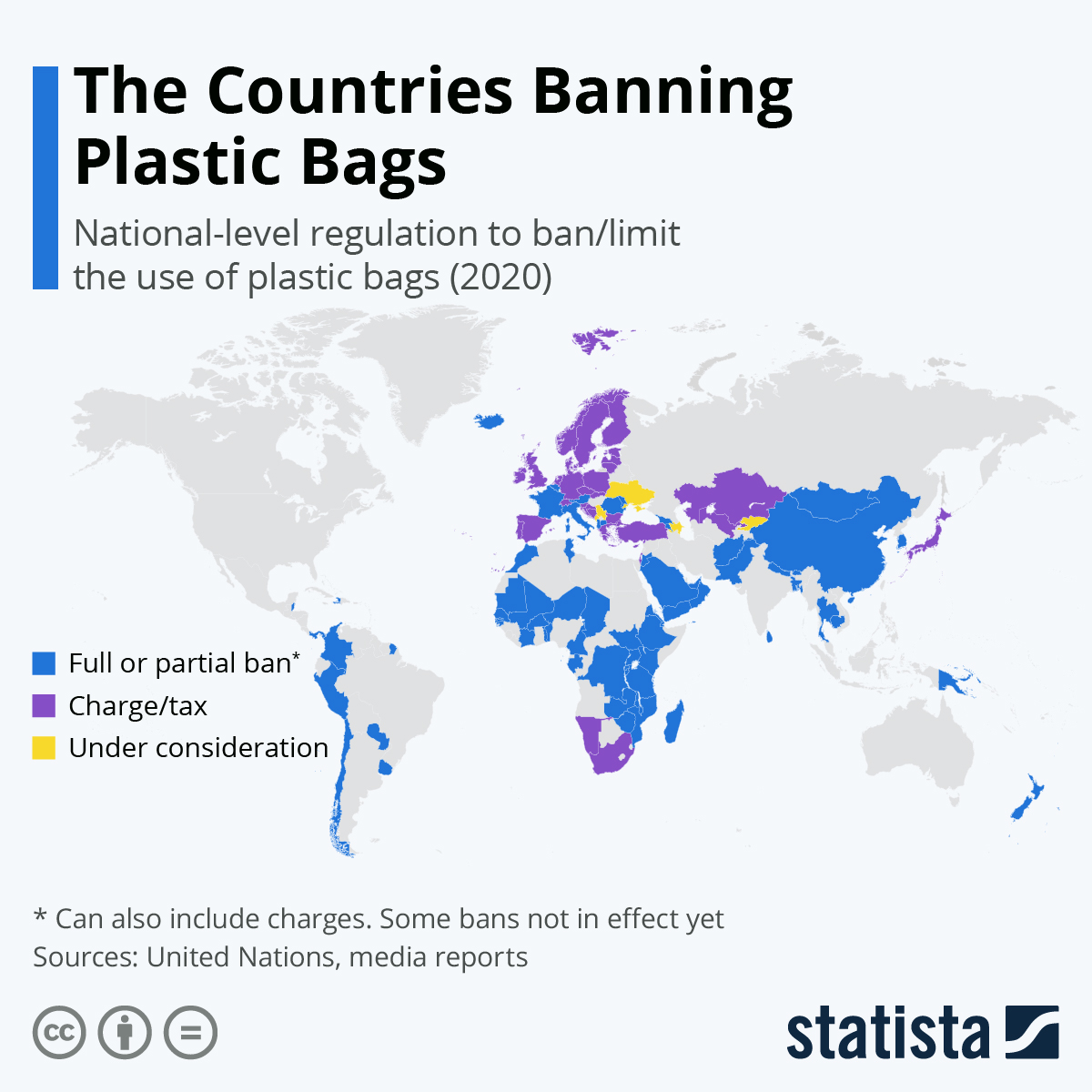We will all face climate change, but we will not face it equally.
Some of the countries that produce the most carbon emissions will not face direct adverse effects as soon as other nations across the world. Our notions of independence, responsibility, and obligation are being challenged. We are confronted with the fact that choices from each nation in the world affect everyone else. Countries contributing the most to the deterioration of our planet’s health may experience the consequences last.
Rwanda has faced an increase of 0.35°C per decade since 1971, higher than the global average. It has seen heavy rainfalls, drought, floods, and food scarcity, all because of global climate change. As Rwanda is directly impacted by the global climate crisis, their laws and policies are strikingly different compared to other nations.
As planetary health plummets, Rwanda faces dire outcomes, forcing it to make radical changes. Rwanda has been one of the most proactive nations in the world when it comes to restoring planetary health.
Using their national target of “Vision 2020” – a government development programme aiming to transform the nation to a knowledge-based middle-income country by 2020 in order to reduce poverty and health issues – they were able to clearly make policy using scientific backing, focusing on issues of climate change and the environment.
In 2008, it was one of the first countries to ban plastic bags. It is one of 16 countries in Africa to have completely banned the use of plastic bags, while 18 other nations in Africa have passed the law to ban plastic bags and are in the process of implementation. Rwanda’s ban includes banning the manufacture, use, import, and sale of plastic bags. Travelers to Rwanda are not allowed to bring plastic carrier bags into the country. In 2019, Rwanda became the first country in Africa to ban all single-use plastics.

Their commitment to landscape restoration has different facets. It has restored forests, wetlands, and lakes. Rwanda plants millions of trees strategically each year. They plant trees to protect forests, rivers, and wetlands. They provide training in the form of forest management and in other sectors to ensure their efforts are holistic. They have classified some of their forests as national parks, which has increased the tourism sector significantly.
They rehabilitated the Rugezi wetland in 2005, which resulted in the recovery of water levels, increased hydropower in Burera and Ruhondo lakes, and an increase in the fishing sector.
As a fast-growing nation, Rwanda has the ability to develop a climate resilient and low carbon economy as their population grows. It aims to do this by 2050.
References:
World Economic Forum. (n.d.). Five ways Rwanda is leading on green growth. [online] Available at: https://www.weforum.org/agenda/2016/05/5-ways-rwanda-is-leading-on-green-growth/#:~:text=Rwanda [Accessed 27 Sep. 2020].
Statista Infographics. (n.d.). Infographic: The Countries Banning Plastic Bags. [online] Available at: https://www.statista.com/chart/14120/the-countries-banning-plastic-bags/ [Accessed 27 Sep. 2020]
Greenpeace Africa. (n.d.). 34 Plastic Bans in Africa | A Reality Check. [online] Available at: https://www.greenpeace.org/africa/en/blogs/11156/34-plastic-bans-in-africa/ [Accessed 27 Sep. 2020].
Kigali (2000). REPUBLIC OF RWANDA MINISTRY OF FINANCE AND ECONOMIC PLANNING RWANDA VISION 2020. [online] Available at: https://www.sida.se/globalassets/global/countries-and-regions/africa/rwanda/d402331a.pdf.

Comments
Hey Mirium. It was a pleasure reading your post about Rwanda. I have heard much about the progress in Rwanda and it is great to see their commitment to the environment/fighting climate change. I find it interesting that when compared to Africa and Europe, The Americas seem to be lagging behind in banning the use of plastics. Do you have any insight into what makes Rwanda a leader in this area?
Kevin
p.s. I had considered using it for my country of study, so I plan to follow your posts closely!
Mirium,
I love that Rwanda has banned all plastic bags and even all singe use plastic! I only wish other countries would follow their lead. It is one of the things that drives me crazy the most in the UK. They don’t use plastic bags but every single food item is wrapped in plastic! Thanks again for sharing about their progress in this area! I found it so encouraging!
Katie
Thanks for this interesting post, Mirium. It is very encouraging to see a small country like Rwanda take such a strong stance on pollution. What do you think other/neighbouring countries can take away in terms of lessons on how to move forward in a similar vein?
Thanks,
Ladeisha
Hi, Mirium,
Thank you for the insight. It looks like Rwanda is taking quite a holistic approach in fighting climate and human impact on the country and its wellbeing. Do you by any change have any info on what Rwanda is doing in communicating these initiatives to the neighboring countries and trying to get them on board? With Congo, Tanzania next door, it seems like the initiatives should be addressed jointly! We’re trying the same when addressing the Baltic Sea issues in our region (with very varying effects though)
Juris
Hi Mirium, great to read a blog on an issue which is moving toward the right direction. I was wondering if you found anything on how they are monitoring the implementation of the ban?